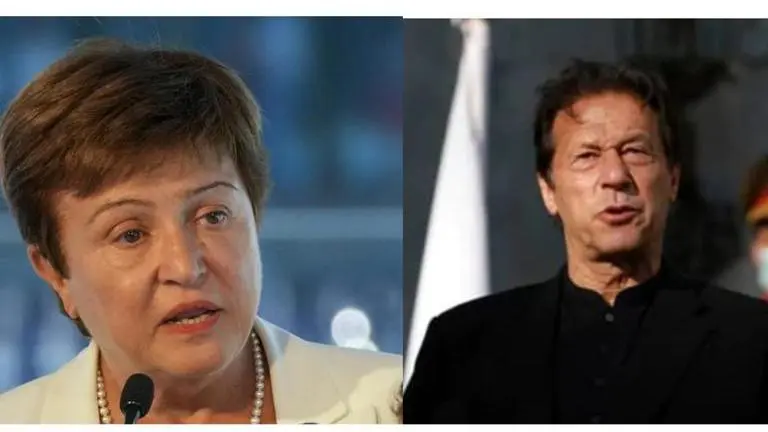Updated 25 November 2021 at 06:47 IST
IMF rebuffs Imran Khan govt's borrowing request amid rising financial woes in Pakistan
In the midst of the country's persistent financial difficulties, the IMF has rejected Pakistan's plea to keep the door open for borrowing from the central bank.
- World News
- 3 min read

Amid the ongoing financial woes in Pakistan, the International Monetary Fund (IMF) has rejected Islamabad's request to keep the door open for borrowing from the central bank and also did not agree on any meaningful accountability of the State Bank of Pakistan (SBP), reported ANI, citing The Express Tribune. As per the Pakistani Daily, the central bank's profit would not be delivered to the federal government in full unless the SBP obtains cover to back its monetary liabilities. At least 20% of the state bank's profit would henceforth be retained in the IMF central bank's coffers until the desired cover is obtained, reportedly.
Moreover, the IMF rejected Pakistan's proposal to enable it to borrow up to 2% of its gross domestic product (GDP) in a fiscal year. According to the report, the IMF's rejection comes despite the Pakistani government's belief that it had a constitutional right to take loans to finance its operations. Although the government is prohibited from borrowing from the state bank under the IMF programme until September 2022, the cabinet has already given up and agreed to permanently close this door through law, according to the report.
The bank will not purchase securities issued by the government, any government-owned entity, or any other public organisation in the primary market. The draft further stated that the bank may purchase such securities in the secondary market. According to the ANI, the ban on borrowing from the central bank has placed the government at the mercy of commercial banks, who have recently requested interest rates that are much higher than the key policy rate.
However, the IMF announced on Monday that weeks of negotiations with Pakistan had resulted in a tentative agreement to restart a $6 billion economic bailout for the Islamic country. According to a statement issued by the International Monetary Fund, under the new proposal, the IMF will release approximately $1 billion to Pakistan, increasing the total disbursement from the $6 billion bailout to around $3 billion since 2019. The meetings this month resulted in an agreement "subject to approval by the Executive Board, following the implementation of prior actions, notably on fiscal and institutional reforms," according to the statement.
Advertisement
Pakistan's financial woes
In April 2020, the IMF allocated $1.4 billion to Pakistan to assist it in dealing with an economic crisis caused by an increase in coronavirus fatalities. Since last year, at least 28,663 Pakistanis have lost their lives due to COVID-19, and around 1.2 million have tested positive for the new virus. According to analysts, the fund wants Pakistan to decrease its budget deficit further, raise power and gasoline costs, and combat money laundering and corruption. In recent weeks, the government has complied with most of the IMF's criteria, but doing so has made Prime Minister Imran Khan extremely unpopular among the public, since inflation and the price of critical foods have skyrocketed, according to AP.
According to officials, the delay in reaching a deal between Pakistan and the IMF was caused by strained relations between Pakistan and the United States. Since Khan took office, US President Joe Biden has avoided making contact with him. This year, Khan publicly refused to supply Washington with bases for operations in Afghanistan, reportedly. The United States, which wields considerable power over the IMF, according to the media agency, has stated that the fund should not finance the tens of billions of dollars in loans that Pakistan has obtained from China as part of Beijing's global Belt and Road Initiative.
Advertisement
(With inputs from agencies)
(Image: AP)
Published By : Aparna Shandilya
Published On: 25 November 2021 at 06:43 IST
